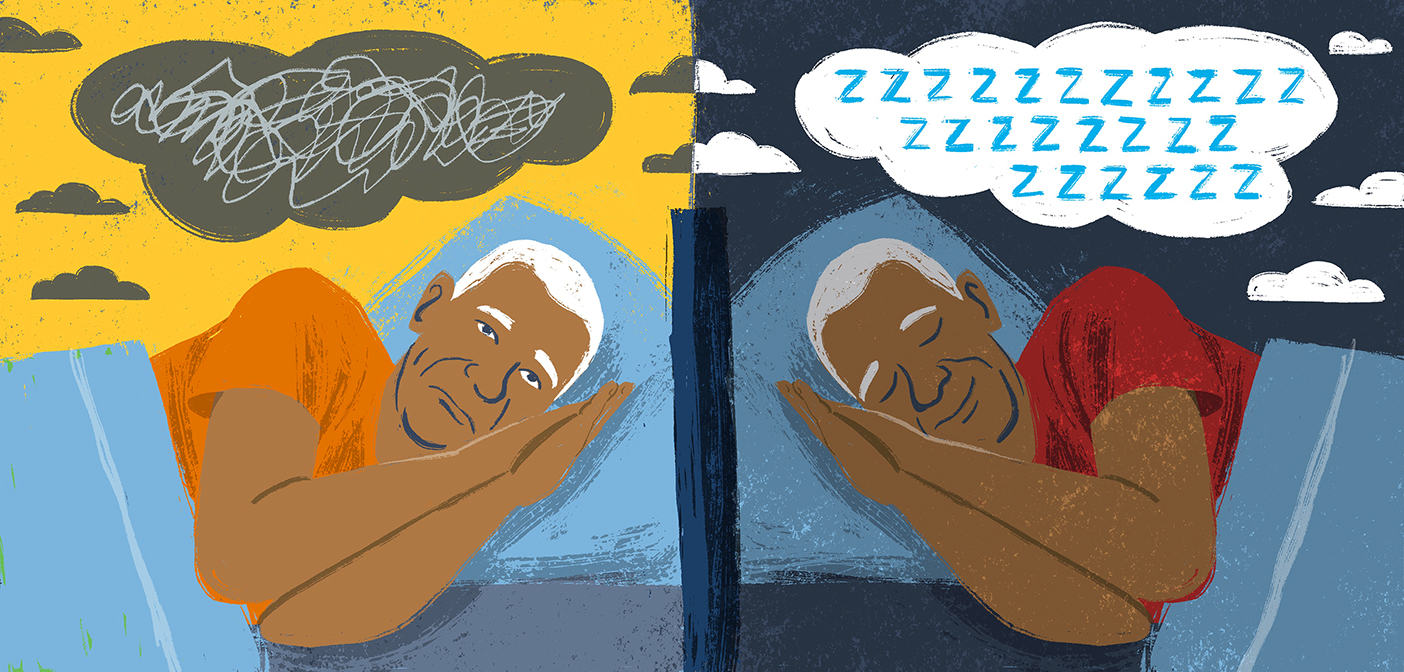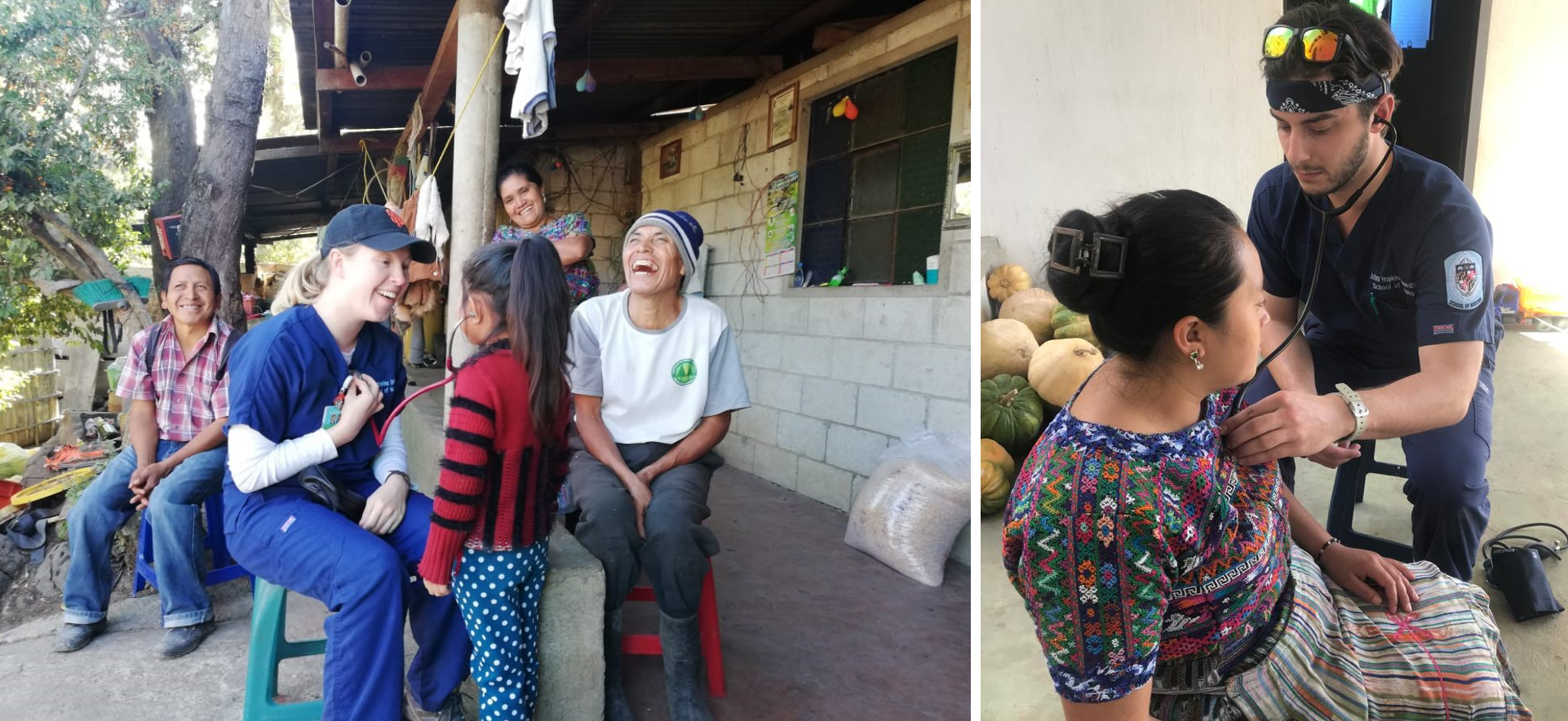ILLUSTRATIONS BY ANDY SNAIR
Insomnia, which affects up to 40 percent of older adults, is an independent risk for cognitive decline and “has been associated with increased pathological accumulation of proteins that cause neurodegeneration.” It can lead to depression, impacting quality of life and increasing the risk of cognitive decline.
Cognitive behavioral therapy is considered the most effective non-pharmacological intervention for insomnia, but its effectiveness can be limited by access to providers, delay in treatment benefit, sleepiness of patients affecting cognitive ability, lack of objective methods for adherence, and even increased fall risk as people are asked to get out of bed in low-light conditions as part of treatment, making matters worse. So older adults are often more likely to simply be prescribed medication, a treatment with its own side effects and risks. It’s a conundrum.
“There are, however, etiological risk factors and perpetuators of insomnia such as poor sleep hygiene and worry and rumination at bedtime that are modifiable.”
And that’s where Johns Hopkins School of Nursing researcher Junxin Li and colleagues have gone to work, they write in “A Randomized Controlled Trial to Test a Behavioral Sleep Intervention to Improve Insomnia Symptoms in Older Adults with Mild Cognitive Impairment: Multicomponent Behavioral Sleep Intervention (MBSI) Protocol” (Contemporary Clinical Trials).
In their randomized, two-group parallel pilot study, the primary aim is to determine the immediate and sustained efficacy of MBSI compared to sleep education on sleep-related outcomes as well immediate and sustained efficacy on health-related quality of life.
“Results from the proposed study will provide foundational knowledge regarding the effects of this behavioral sleep intervention on sleep and quality of life and will provide evidence for additional intervention testing and scaling.”

 Forging Policy: How Can Doulas Improve Black Maternal Health?
Forging Policy: How Can Doulas Improve Black Maternal Health? Q & A With Forensic Nurse, Michelle Patch
Q & A With Forensic Nurse, Michelle Patch Guatemala Re-visited: Rainwater Project Shows Value of Service-learning Trips
Guatemala Re-visited: Rainwater Project Shows Value of Service-learning Trips You’re Welcome
You’re Welcome Dr. Robert Atkins, Anna D. Wolf Endowed Professor
Dr. Robert Atkins, Anna D. Wolf Endowed Professor






